Saudi Arabia, Allies Send Ambassadors Back To Lebanon
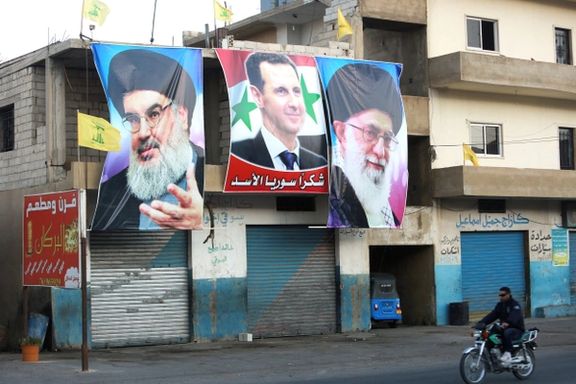
Along with a ceasefire in Yemen, Saudi Arabia, Kuwait and Yemen announced the return of their envoys to Lebanon as a sign of tension reduction among Arab states.

Along with a ceasefire in Yemen, Saudi Arabia, Kuwait and Yemen announced the return of their envoys to Lebanon as a sign of tension reduction among Arab states.
Last year, Saudi Arabia and its allies withdrew their envoys from Lebanon over what essentially has been the Iranian-backed Hezbollah’s influence in the country and criticism by pro-Hezbollah politicians of the Saudi role in Yemen’s conflict.
It is not clear if the Saudi decision means economic support for the beleaguered Lebanese economy that has gone into a tailspin since mid-2019. Saudi Arabia and its wealthy oil-producing allies were traditionally assisting Lebanon with economic aid.
The Saudi foreign ministry said its ambassador returned in response to calls by "moderate" Lebanese political forces and after remarks by Prime Minister Najib Mikati regarding "ending all political, military and security activities" that affect Saudi Arabia and other Persian Gulf states.
The Saudi statement on state news agency SPA stressed the importance of Lebanon "returning to its Arab depth".
Kuwait's foreign ministry issued a similar statement. Mikati's office said Kuwait's envoy would return before the end of the week.
Mikati, in a Twitter post welcoming the move, said Lebanon was "proud of its Arab affiliation and upholds the best relations with Gulf states", describing them as pillars of support.
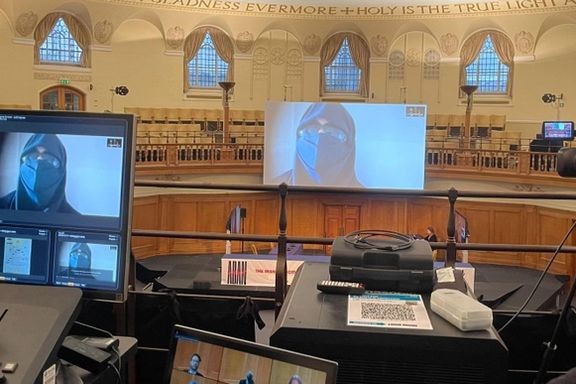
Fifteen human rights groups have urged international organizations to take action to stop Iran's persecution of witnesses testifying against its violations.
In a statement released on April 7, the fifteen rights organizations which include Amnesty International, Frontline Defenders, and Together Against the Death Penalty (EPCM) urged international bodies, such as the United Nations, to take action to stop Iran's harassment and persecution of witnesses and their families who testified at the Iran Atrocities (Aban) Tribunal last year.
The Tribunal's hearings were held in London in November 2021 and February 2022 and heard evidence from 55 witnesses including protesters, torture survivors, healthcare workers, and former security and judicial officials, as well as relatives of protesters and bystanders who were shot dead during the November 2019 protests.
The signatories of the statement said Iran’s intelligence ministry and other security forces have subjected at least six Tribunal witnesses and/or their families to a litany of abuses since shortly after the first set of public hearings.
These abuses, they said, included arbitrary arrest and detention, prosecution on vaguely worded national security related charges, threatening telephone calls, summoning for coercive interrogations, and raids on their homes and places of work. Such abuses have intensified following the second set of hearings in February, the rights organizations said.
Since November 2021, at least six witnesses and their families have been subjected to arbitrary arrest and detention, violence, unjust prosecution, summoning for coercive interrogations, death threats, and other forms of harassment, the rights organizations said in their statement.
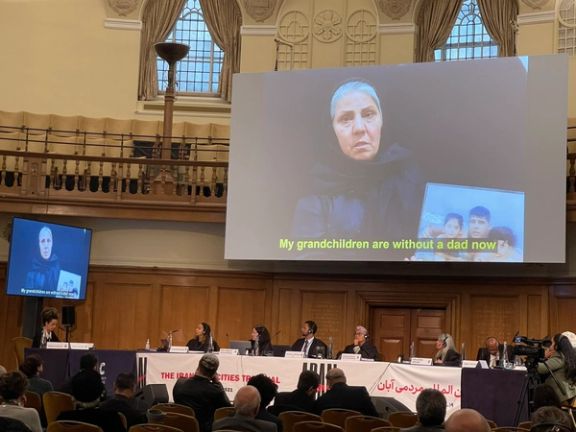
Some families have also agreed to give false video statements under duress by security forces for fear of their families’ safety. "These violations constitute a form of torture, or other cruel, inhuman or degrading treatment,” the signatories of the statement said.
One of the victims is Amin Ansarifar, whose son Farzad Ansarifar was killed by security forces on November 16, 2019 in Behbahan. Ansarifar and his family have been subjected to harassment since he testified at the hearings at the tribunal in November.
Amin Ansarifar was arrested on February 19, 2022 for “spreading propaganda against the system”, the family's house was raided, and Arman Ansarifar, the family's other son, was arrested. The father and son were subsequently sentenced to three months in prison and a five-year ban on travelling abroad.
The authorities also accused Farzaneh Ansarifar, Ansarifar's daughter, of spearheading her father’s participation at the Tribunal. She has now been sentenced to four years and six months in prison for her Instagram posts regarding her brother's death.
The parents of Aram Madoukhi who fled Iran after taking part in the November 2019 protests in Sanandaj, Kurdistan province, have also faced relentless harassment and intimidation by the intelligence ministry since he testified at the tribunal.
Intelligence agents told the family that their son was still "within the grasp of the Iranian authorities" even outside the country and could face the fate of dissident journalist Rouhollah Zam, who was abducted by Iran’s Revolutionary Guards during a visit to Iraq in 2019 and was executed later.
In an apparent attempt to call into question the validity of his testimony and the legitimacy of the overall proceedings, the Mardoukhi family were pressured to consent to video-taped "interviews" in which they were instructed to say that their son had lied during his testimony and had been paid to testify before the Tribunal. Intelligence agent eventually managed to extract such false statements from Habibollah Mardoukhi, Aram's father.

Media in Tehran say $7 billion of Iran's frozen funds in South Korea will be freed in exchange for the release of three American dual citizens held as hostages.
In an article titled “Releasing Iran’s blocked assets via non-nuclear means”, Farhikhtegan newspaper said on Thursday that Iran had been negotiating in parallel with the nuclear talks in Vienna to access its frozen assets. A similar report was published in Iran on Wednesday.
The article quoted an unnamed informed source as saying that Iran is set to release three dual Iranian-American prisoners -- Siamak Namazi, Bagher Namazi, and Morad Tahbaz -- in exchange for access to its blocked funds in two South Korean banks.
Tahbaz -- also a UK citizen – is an environmentalist who was jailed in 2018 on trumped-up espionage charges. Siamak Namazi, was jailed 2015, a year before his elderly father Bagher (Baquer) traveled to Iran to help him but was also detained on vague accusations, like his son who was accused of collaboration with a foreign country. The Namazi detentions took place while the nuclear deal with Iran was in effect. In 2016, Tehran released other hostages in exchange for funds frozen in the US.
According to the article, the assets will be released into Iranian accounts through channels similar to the framework agreed with Britain, in which, €470 million was paid by the UK in exchange for the release of two British Iranians -- Nazanon Zaghari-Ratcliffe and Anoosheh Ashuri in March.

The US-led coalition in Syria says two of its troops were lightly injured when artillery rounds hit a base housing American troops in the country’s north-east.
The International Coalition for Operation Inherent Resolve said the two wounded coalition members were treated and returned to duty following the early Thursday attack at Green Village in Deir al-Zor province bordering Iraq.
Iraqi sources, speaking on the condition of anonymity, said those wounded were Americans, and that one of them suffered traumatic brain injury.
Green Village, located just east of the Euphrates River, is used by some of the several hundred US forces in Syria.
Iran-backed militias in Syria and Iraq have often targeted US bases in the two countries, vowing to drive out the Americans from the region.
A war monitor, the Britain-based Syrian Observatory for Human Rights, said five rockets were fired early Thursday from positions west of the river where Iran-backed fighters are concentrated.
On Wednesday night, three Katyusha rockets landed near an oil refinery in Iraq's northern semi-autonomous Kurdish region but no casualties or material damage were reported.
The Kawergosk refinery, about 20 kilometres north-west of the regional capital, Erbil, is one of the largest in the oil-rich area.
Nobody has immediately claimed responsibility for the attacks, which followed a series of assaults on US forces and their local partners in Iraq and Syria carried out by Iran and its allied paramilitary groups.
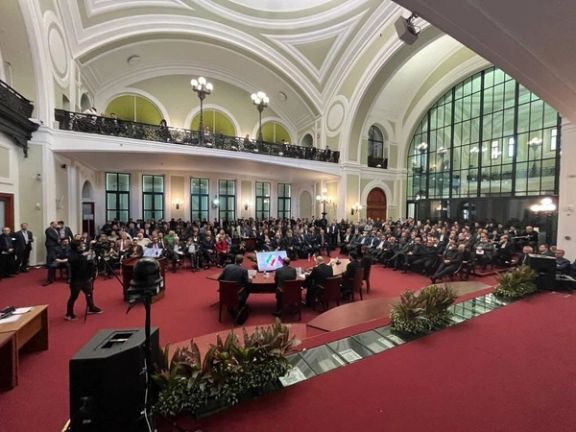
Iran and Russia held a trade conference Thursday in Moscow with representatives of over 370 businesses present.
Kazem Jalali, Iran’s ambassador in Moscow, Alireza Peyman-Pak, head of Iran’s Trade Promotion Organization, and Sergeĭ Katyrin, President of Russia’s Chamber of Commerce and Industry, all spoke on potential for boosting economic relations. The Iran-Russia Trade Convention was held in the conference hall of the Russian Chamber of Commerce and Industry in Moscow.
Jalali told Iranian state broadcasting that that over 300 Russian businesspeople were present, with others from across Russia following the conference online. Peyman-Pak said Iran was willing to increase trade to $10 billion in the short term. Trade reached $3.3 to 4 billion in 2021, with Russian exports outweighing Iran’s by around three to one.
Trade between Russia and Iran was rising even before the United States imposed ‘maximum pressure’ sanctions on Iran in 2018, slashing Iran’s business links with western Europe, and may increase further with US and western European sanctions against Russia over the Ukraine crisis.
Representatives of 70 Iranian and 300 Russian companies in nine sectors, including industry, technology, petrochemicals, medicine, and food, held meetings at Thursday’s conference. Over 50 of the Iranian participants were from the private sector, including companies dealing with cement, aquaculture, clothing, medical equipment, and pharmaceuticals. The Iranian delegation, which arrived in Moscow Monday, is reportedly the biggest ever to visit Russia.
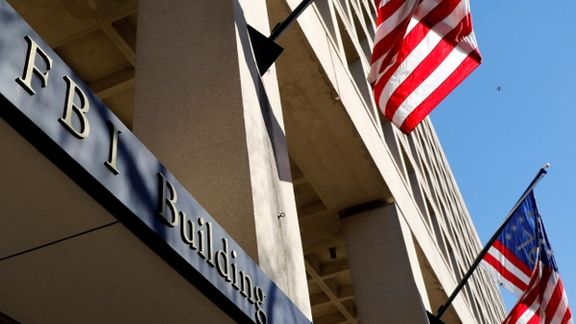
Two men, one with an Iranian name were arrested in Washington on Wednesday for posing as federal agents and giving expensive gifts to Secret Service personnel.
There was no reference in the media to the nationality status of the suspects, whether they were American citizens or legal residents, nor any reference to their possible overseas connections.
One of the men was identified as Arian Taherzadeh, an Iranian-sounding name, while the second individual named Haidar Ali could be of a different Middle Eastern or Southwest Asian origin.
Federal Bureau of Investigation (FBI) agents stormed an apartment building where Taherzadeh was said to have several apartments, offering free of rent to Secret Service agents he had befriended, posing as a Homeland Security undercover investigator.
At least one Secret Service agent assigned to First Lady Jill Biden’s detail was a target of the suspects, who gave or offered expensive gifts to federal agents for yet unexplained reasons.
The conspiracy began in February 2020, according to the Washington Post. This coincides with the killing of Iranian Revolutionary Guard general Qasem Soleimani in a US airstrike in Baghdad in January 2020, for which Iran has vowed retaliation against former American officials such as Secretary of State Mike Pompeo. Whether the suspects have any connection with Iran could be speculative at this point before US authorities release more information on the case.
On January 6, 2021 the commander of Iran's Qods (Quds) Force Esmail Ghaani was quoted by Iranian media as saying that "revenge [for Soleimani] has started from day one and you will not have peace even in your own homes...and it cannot be ruled out that we take revenge in your own home."
FBI documents submitted to the US District Court show anti-terrorism agents are involved in the case, requesting search warrants for the suspects’ social media accounts and signing the criminal complaint.
Dozens of federal agents were seen in and around the apartment building on Wednesday, some carrying seized evidence presumably from the apartments belonging to Taherzadeh.
The suspects were fully set up to impersonate federal agents with an official-looking SUV and Tehrazadeh offered his targets gifts, such as weapons and generators, use of vehicles and apartments.
The complaint filed with the court said that four Secret Service personnel were placed on administrative leave on April 4. Both suspects are scheduled to appear in US District Court on Thursday and remain in custody.
The investigation began March 14, according to media reports, when accidently the men were brought to the attention of a US Postal Service inspector visiting the building in question. Residents identified the suspects as federal agents to the inspector, which led to the discovery that they were impersonators.